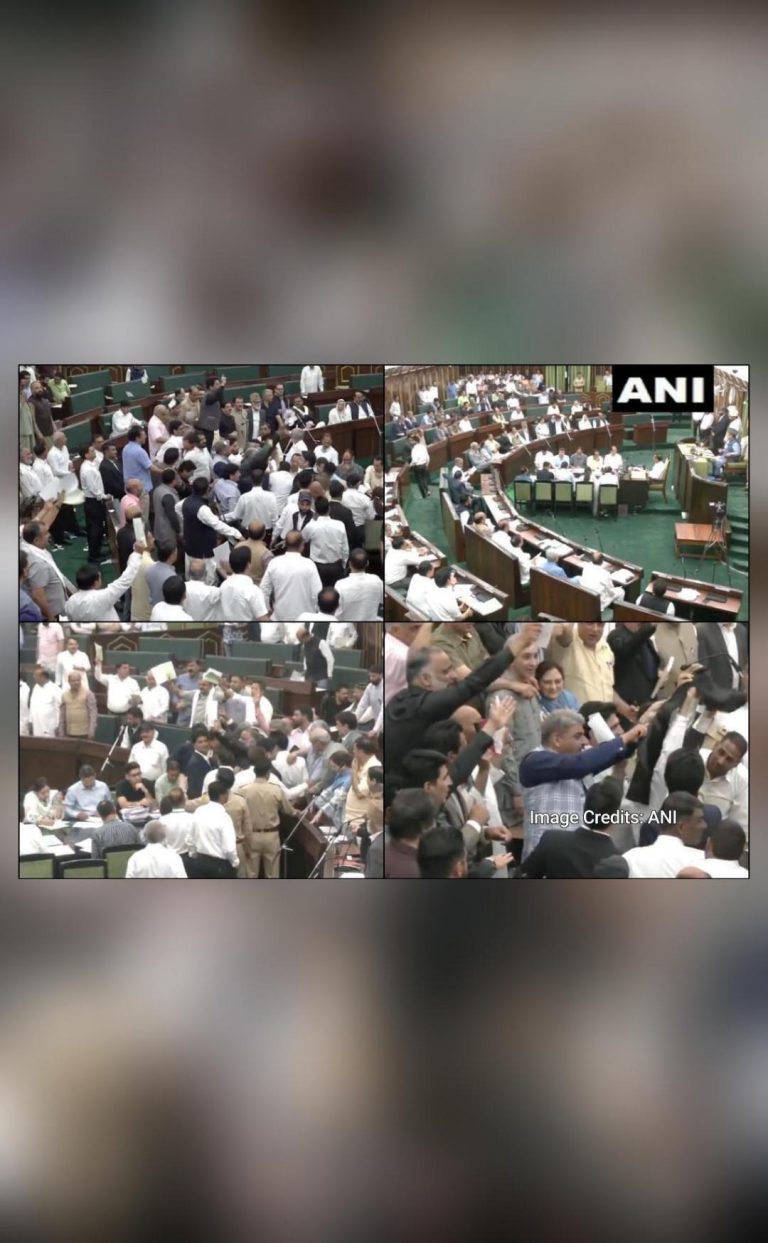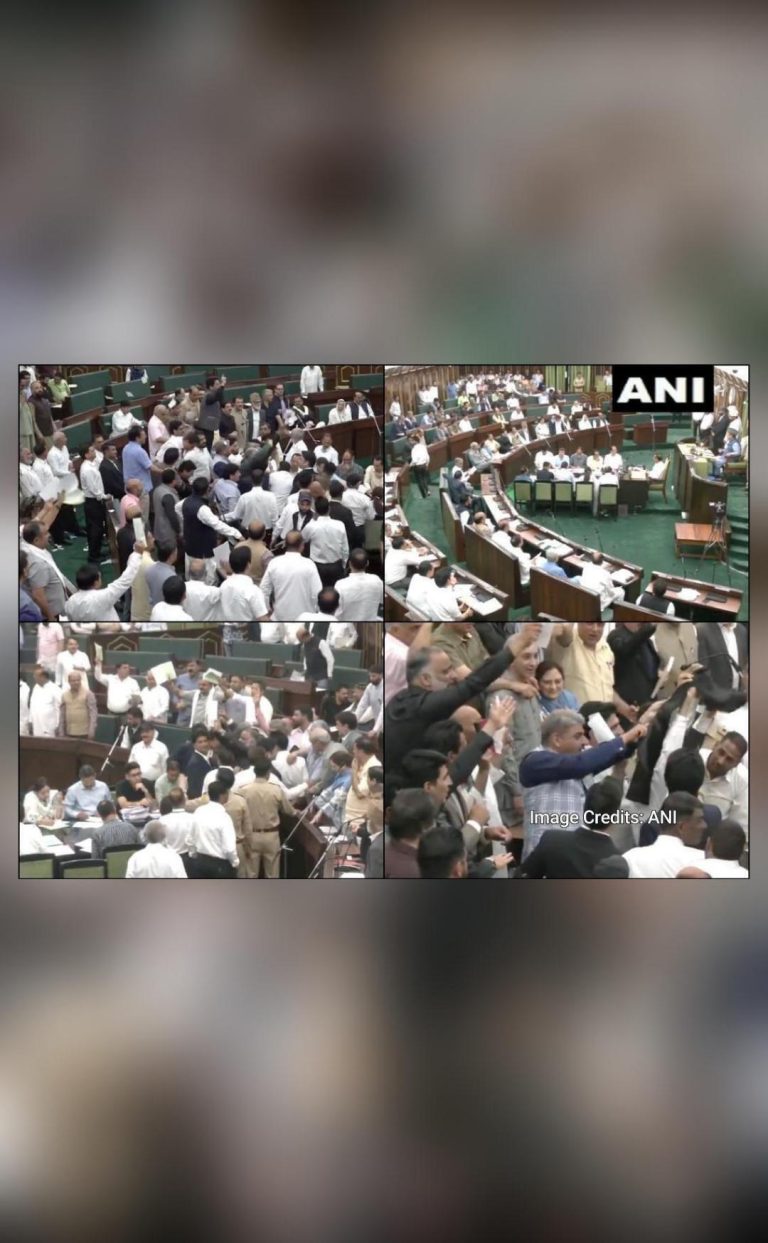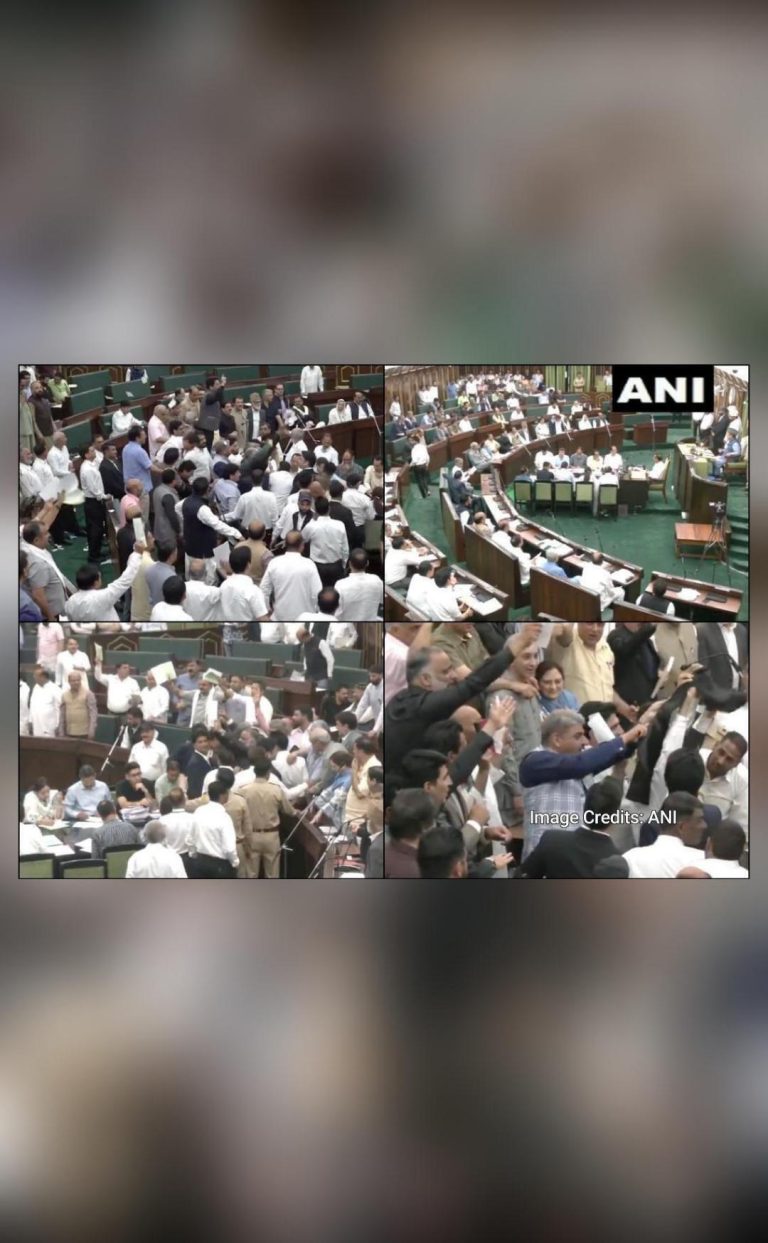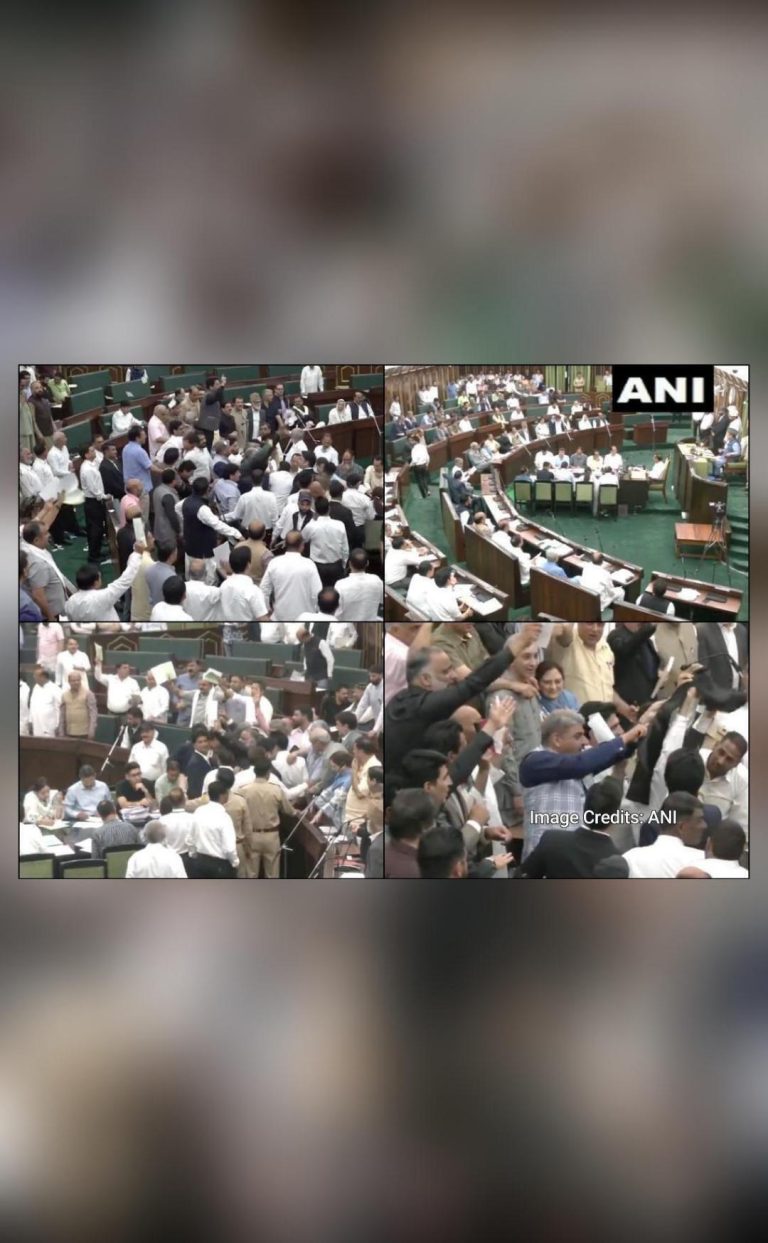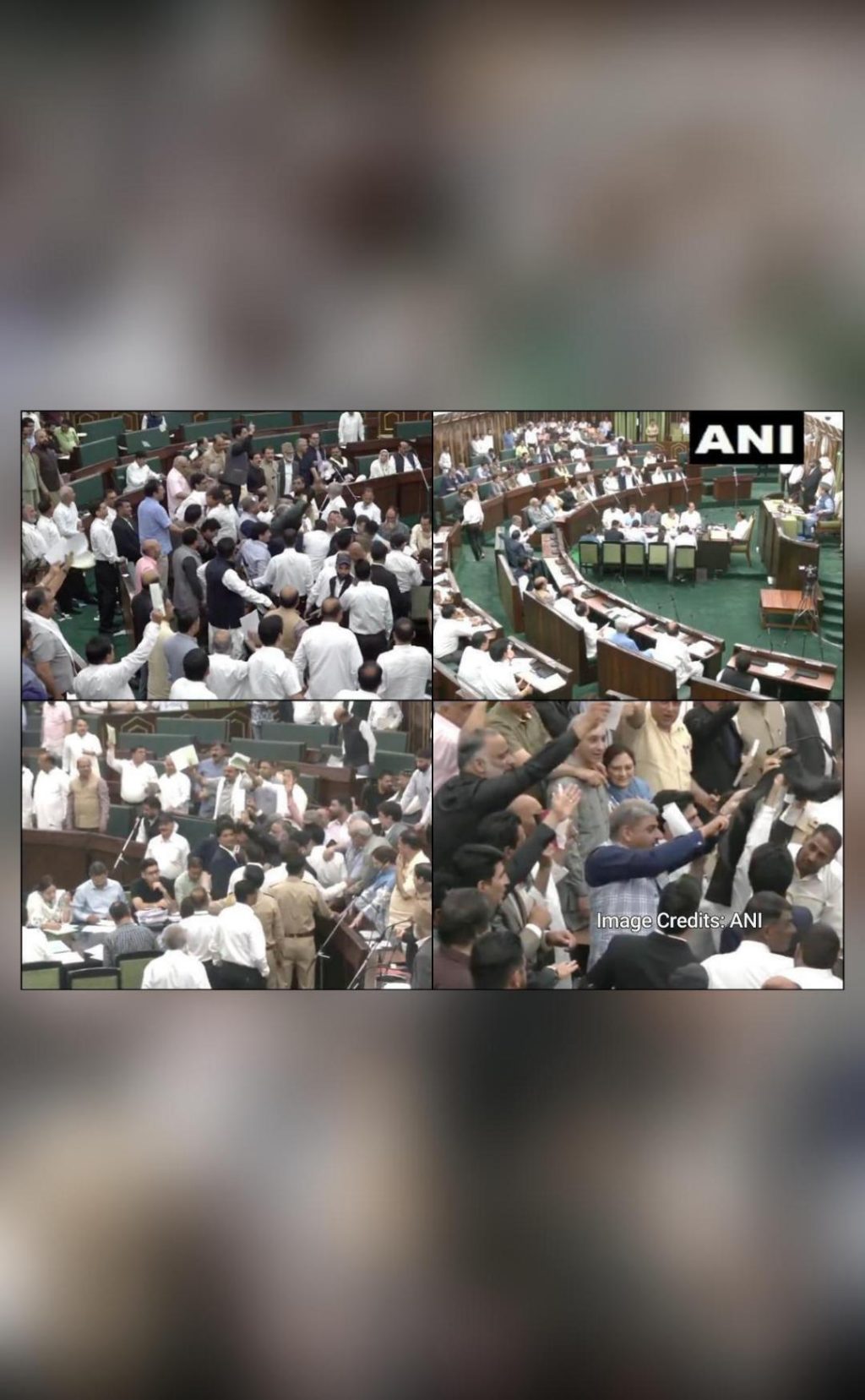
Jammu & Kashmir Assembly adjourned amid uproar over Waqf Act
The Jammu and Kashmir Assembly on Monday witnessed a massive uproar after Speaker Abdul Rahim Rather denied an adjournment motion on the Waqf Act, following which the House was adjourned. The Assembly was in a state of pandemonium as National Conference (NC) MLAs moved an adjournment motion to discuss the Waqf Act, which has been a contentious issue in the region. However, the Bharatiya Janata Party (BJP) also protested, demanding that the Question Hour be held.
The Waqf Act, which was passed by the previous coalition government, aims to regulate and manage the Waqf properties in the state. However, the BJP has been opposing the Act, claiming that it is anti-Hindu and seeks to convert Hindu shrines into mosques. The National Conference, on the other hand, has been supporting the Act, saying that it is necessary to protect the Waqf properties and ensure their proper management.
The drama unfolded in the Assembly when NC MLAs, led by former Chief Minister Omar Abdullah, moved an adjournment motion to discuss the Waqf Act. However, Speaker Abdul Rahim Rather rejected the motion, citing that the Assembly was already discussing the issue in the previous session. This move by the Speaker sparked outrage among the NC MLAs, who protested and demanded that the motion be taken up for discussion.
The BJP MLAs, on the other hand, also protested, but for a different reason. They demanded that the Question Hour be held, which was scheduled to be taken up after the adjournment motion. The BJP MLAs claimed that the adjournment motion was an attempt to disrupt the functioning of the Assembly and that the Question Hour was more important.
The protests and slogan shouting by the MLAs from both sides led to the adjournment of the House. The Speaker announced that the House would now adjourn for the day, and the next session would be held tomorrow.
The opposition to the Waqf Act has been growing in the region, with several Hindu groups and organizations opposing the Act. They claim that the Act is designed to facilitate the conversion of Hindu shrines into mosques and that it is against the principles of secularism. The National Conference, on the other hand, has been defending the Act, saying that it is necessary to protect the Waqf properties and ensure their proper management.
The controversy over the Waqf Act has been going on for several months now, with both the BJP and the National Conference trying to outmaneuver each other. The issue has taken a political turn, with both parties trying to portray themselves as champions of Hinduism and the state’s identity.
However, the opposition to the Waqf Act has also been criticized by many as being motivated by communal and religious sentiments. The Act is seen as a necessary step to regulate and manage the Waqf properties, which are an integral part of the state’s history and culture.
The controversy over the Waqf Act has also raised questions about the role of religion in politics and the need for politicians to rise above communal and religious divisions. The issue has the potential to further polarize the state and create tensions between different communities, and it is important that politicians take a responsible and measured approach to resolving the issue.
In conclusion, the adjournment of the Jammu and Kashmir Assembly over the Waqf Act has sent a clear message that the issue is far from being resolved. The controversy over the Act has the potential to further polarize the state and create tensions between different communities. It is important that politicians take a responsible and measured approach to resolving the issue and avoid being swayed by communal and religious sentiments.
Source:
